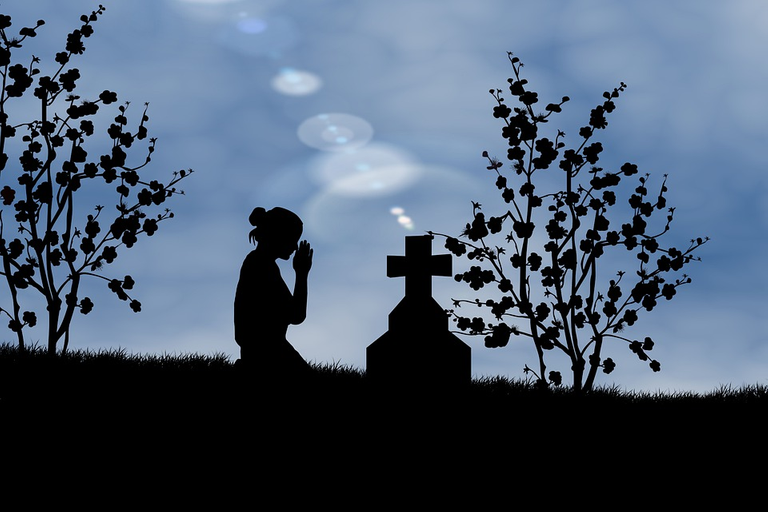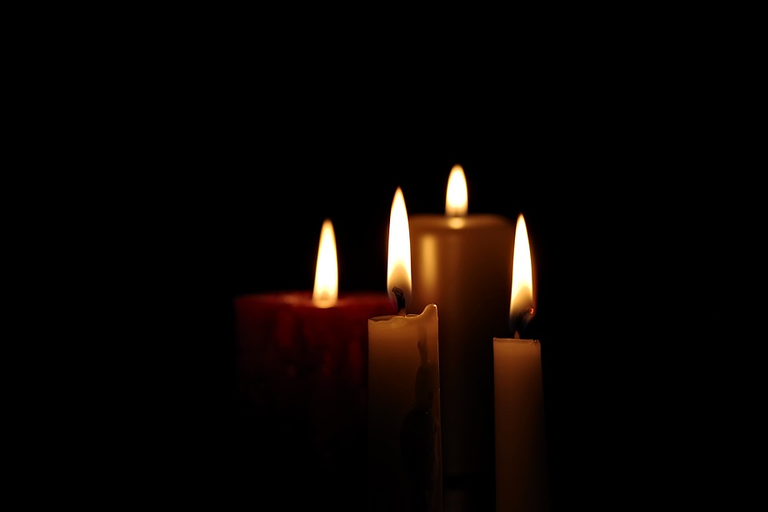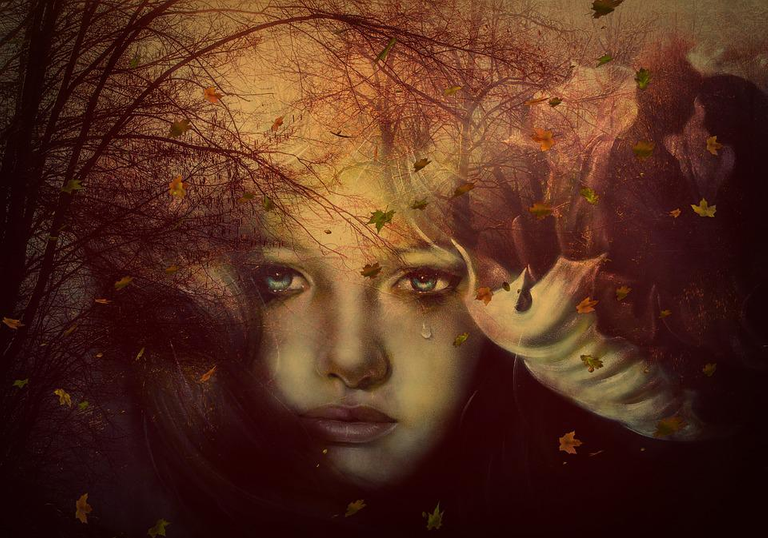[ESP-ING] Tristeza ¿Qué hacemos cuando nuestros seres más queridos se van? / sadness. do we do when our loved ones leave?
Hello hive friends! It is a pleasure to write to you again, this time I am going to talk about a very painful subject for some of us, the death of a loved one, an event that leaves a deep sadness and a feeling of emptiness in the soul, and that some of us have experienced the loss of loved ones throughout our lives, and their death has left a deep mark in our spirit, so much so that the world has turned upside down.
La semana pasada perdí a uno de mi más queridos, primos hermanos, en un accidente de tránsito fatal, esto ha sido un golpe duro para toda la familia, en especial para su madre y su hija de 3 años. Todos estamos consternados por la perdida y ahora me pregunto ¿Cómo hacemos para superar su pérdida?
Por mucho que las personas, que nos quieren lo intenten, nadie haya palabras que puedan hacerte sentir mejor o hacer que disminuya el dolor de perder a un ser querido.
Last week I lost one of my dearest, first cousins, in a fatal traffic accident, this has been a hard blow for the whole family, especially for her mother and her 3 year old daughter. We are all shocked by the loss and now I wonder how do we get over his loss?
No matter how hard people who love us try, no one can find words that can make you feel better or lessen the pain of losing a loved one.
Estamos conscientes que la vida continúa, pero no tenemos la seguridad, porque nos lleva a enfrentarnos a una vida diferente, una en la el ser amado no vivirá físicamente entre nosotros.
El dolor que experimentamos ante la muerte de un ser querido es una reacción natural, este varía en intensidad y forma de exteriorizarse de unas personas a otras, esto denuncia el comienzo de un trayecto individual e inevitable para admitir que nuestro ser querido se ha ido para siempre: es el preludio del duelo, y el comienzo del proceso de sanación que al final nos consuela en nuestra pérdida.
We are aware that life goes on, but we do not have the security, because it leads us to face a different life, one in which the loved one will not live physically among us.
The pain we experience at the death of a loved one is a natural reaction, it varies in intensity and in the way it is externalized from one person to another, it denounces the beginning of an individual and inevitable journey to admit that our loved one is gone forever: it is the prelude to mourning, and the beginning of the healing process that ultimately comforts us in our loss.

fases del duelo/ stages of grief

Fase de desorganización y desesperanza: destaca el abatimiento, que es una de las fases más difíciles del duelo, debido a que es el periodo en el que podemos caer en una depresión. Es donde debemos aceptar todas las emociones que sentimos, comprender que es normal que nos sintamos mal, cuando hemos perdido a una persona que amamos, también se presentan la sensación de que la vida ha perdido sentido, la dejadez, la inapetencia, el insomnio, la pérdida de peso, y todo esto acompañado de las remembranzas persistentes del ser amado que se ha ido.
Fase de reorganización: es donde se intenta menguar los aspectos más atormentados del proceso del duelo, y empezamos a sentir la percepción de volver a la vida normal. Es en este lapso que las evocaciones de nuestro ser querido fallecido, se armonizan con emociones como la alegría y la tristeza. Este es el momento en que no puedes olvidarte de tienes derecho a vivir y no solo eso, que tienes el deber contigo mismo de ser feliz.
Phase of disorganization and hopelessness: it highlights the despondency, which is one of the most difficult phases of grief, because it is the period in which we can fall into a depression. This is where we must accept all the emotions we feel, understand that it is normal to feel bad when we have lost a person we love, there is also the feeling that life has lost meaning, laziness, lack of appetite, insomnia, weight loss, and all this accompanied by the persistent memories of the loved one who has gone.
Reorganization phase: is where we try to diminish the most tormenting aspects of the grieving process, and we begin to feel the perception of returning to normal life. It is in this period that the evocations of our deceased loved one are harmonized with emotions such as joy and sadness. This is the moment when you cannot forget that you have the right to live and not only that, you have a duty to yourself to be happy.

¿Como honrar y recordar a nuestros seres queridos?/How to honor and remember our loved ones?
Perder a una persona amada que deja de estar físicamente con nosotros, no es equivalente a que tengas que olvidarla, es por esto que hónralos mediante acciones que te hagan sentir bien, enciende una vela, di una plegaria en su nombre, haz algo que les gustaba hacer juntos, escribe una carta donde le expreses el amor que le tenías o lo que querías decirle y no lograste hacerlo, busca un álbum de fotos y cuenta historias y anécdotas acerca de lo que vivimos juntos, en fin, sonríe por ellos.


Traducido con www.DeepL.com/Translator (versión gratuita); fotografía cortesía de https://pixabay.com
Translated with www.DeepL.com/Translator (free version);; photo courtesy of https://pixabay.com

